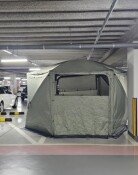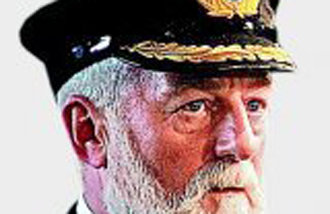Expert Discusses Command Shift Issue
Michael Green is currently a senior advisor at the Center for Strategic and International Studies, a centrist think tank. CSIS is scheduled to meet President Roh Moo-hyun during his visit to Washington in September.
Dong-A Ilbo reporter met him at his office in downtown Washington on August 14.
-Why did the U.S. agree to return wartime operational control over Korean troops to Korea? It showed very cautious approach until last year.
Washington agreed on the principle that South Korean military commanders lead war-time operations. In the six-party talks held last September, an accord on the premise of North Koreas abolition of nuclear program was made and received approval from the White House and the Department of Defense. But North Korea rejected the six-party talks and pushed ahead with the missile test launches. In this context, this expedient process regarding the shift of combat authority is equal to giving an enormous reward to the North. The transfer is one of the three demands from the communist country along with abolishing the national security law and redefining the Northern Limit Line. I will advise the administration to call a time out.
-Has the U.S. not agreed to the speed of the negotiation?
Technically speaking, it was the Department of Defense (DOD). It was also the DOD who leaked the tip to the media that the U.S. government plans to return operational control in 2009. But as far as I know, Washington never made a hard consensus on the timing of 2009. Pentagon is pushing this issue too fast, which is myopic.
-Why is the defense in a hurry?
It is the combined work of Cheong Wa Dae and the DOD. (laugh) They are an axis of evil. Cheong Wa Dae wants to regain sovereignty to score points. Pentagon desires to withdraw U.S. troops stationed in Korea and send them to Iraq. It does not balk at withdrawing troops from Korea. It is puzzled that alliance issues are in an impasse regarding environmental expenses of relocation of U.S. troops in Korea, the Air Forces firing range, and the relocation of military base to Pyeongtaek.
During the interview, Green stated that he does not agree with the DODs and Cheong Wa Daes hurried approach. He also remarked, I do not particularly intend to attack the department.
-The Korean government explains, The Korean government should brace itself for the U.S. unilateral decision to reduce its troops in Korea. The starting point is the shift of combat authority.
That is right. Yet they are too much in a hurry. Considering frictions that Korea, China, and Japan experience and the worsened situation regarding North Korea, it is like sending the wrong signal to the neighboring countries.
-The controversy is intensifying with the concerns that the command transfer will lead to the reduction of U.S. forces, especially ground troops. But President Roh is arguing that, The U.S. will never leave the Korean peninsula because of strategic benefits of stationing in Korea.
His remark itself is right. But the similar logic arose before the withdrawal of troops in the Philippines. It is not quite certain whether the U.S. Congress will make strategically correct and reasonable decisions on the troop withdrawal.
-Isnt it possible that ground forces will withdraw completely in about 10 years from now?
Complete withdrawal of ground troops is bad for Korea. However, it is not something to be shocked about. Im not sure how Congress will conclude from the perspective of the budget.
-This coming September, the Korea-U.S. summit will be held in Washington. What do you think the meeting will be like?
The two leaders should have an identical voice toward North Korea. President Roh should not try to openly lobby President Bush. He announced to the Korean people that he would demand this and that from President Bush and try to lobby at the summit. Such summit can not be successful.
-The Korean government says on the basis of the Korea-U.S. alliance, they have different approaches to North Korea. Where does the alliance stand?
With different views on the main enemy, the two countries will find it difficult to maintain the alliance. Yet, they have many values in common. Such differences can be handled.
srkim@donga.com







